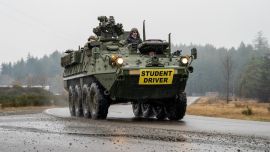At least 24 people have died and 979 injured in hundreds of forest fires whipped up amid a blistering heat wave in south central Chile, a senior government official said Saturday night.
Deputy Interior Minister Manuel Monsalve said 232 wildfires were still active on Saturday, including 16 that began earlier in the day.
The government of President Gabriel Boric extended a state of disaster to include the southern region of Araucania. The regions of Nuble and Biobio were already under a disaster designation. The move allows Boric to mobilize the military to help battle the fires as the death toll continued to rise.
Temperatures soared to 40 degrees Celsius (104 degrees Fahrenheit), hindering efforts to contain the fires, many of which raged out of control.
Boric, who suspended a holiday to rush to the city of Concepcion, 510 kilometres (320 miles) south of the capital, Santiago, tweeted that he would keep working "to confront the forest fires and to help families."
Boric said Argentina had offered to send firefighters and equipment. Brazil, Uruguay, Mexico and Spain have also offered help, Interior Minister Carolina Toha said.
"We are becoming one of the [nations] most vulnerable to fires, fundamentally due to the evolution of climate change," Toha said.
Fire conditions that would have seemed extreme just three years ago are turning more common by the year, she said.
Ten of the deaths were in the town of Santa Juana, in Concepcion Province, authorities said earlier.
The fires destroyed at least 88 homes and swept through 47,000 hectares (116,000 acres) of forest, officials said.
The mayor of Santa Juana, Ana Albornoz, said that the fires had hit hard in the township because "the terrain is very rugged and the roads are bad."
"Our population is very small, with one person living atop one hill and another on another hill, while the urban area is overcrowded," she said.
The dead included two crew members of a helicopter fighting fires who were killed in a crash Friday afternoon, officials said.
One firefighter has died and at least eight have been injured while battling the blazes.
In all, some 2,300 firefighters and 75 aircraft have been deployed in the region.
The heatwave has created fears of a repeat of 2017, when widespread fires in the same region left 11 people dead and destroyed 1,500 homes.
María Inés Hernández, for one, described forest fires ravaging central Chile as hell on Earth.
The 55-year-old social worker in the town of Santa Juana in the hard-hit Bío Bío farming region said many houses in the area were reduced to ashes.
"It is a miracle that some of the houses were spared," Hernández told AFP. "Now we are afraid that the fire will return.... Where will we find refuge? Where? How?"
A Mapuche man named José Ankalao said 70 percent of his village in an ancestral area called Wallmapu was destroyed, including land he inherited from his great-great-grandfather.
"This is such a huge tragedy. I don't know if people can comprehend what is happening," he tweeted.



















Comments